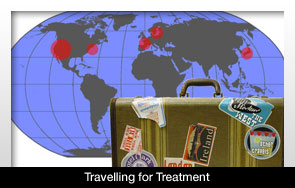 |
Medical tourism is to go under the microscope in a major new study, led by an academic from the University of York, which aims to assess its potential advantages and disadvantages.
The study, which is funded by the National Institute for Health Research, will examine the motives people have for travelling across national boundaries to receive treatments, such as dental services, elective surgery for hip or joint replacement, cosmetic surgery and fertility treatment.
Dr. Neil Lunt of the York Management School will head a team of researchers that includes health economists, social scientists and clinicians who will research four aspects of medical tourism.
They will spend 18 months studying (1) economic impact; (2) consumerism and patient decision-making; (3) quality, safety and risk; and (4) industry development.
Medical tourism is mainly privately funded and the researchers will seek to establish the amount people are paying for this healthcare and its economic impact. They will also examine the potential savings for the NHS that contracting out treatments to other countries might bring.
But this will be linked to a review of potentially negative impacts on the NHS, such as the need to ensure continuity of care for people who have been treated abroad and the cost of treating complications.
The research team will explore how patients make their decisions concerning treatments and destinations, what information they use—such as Web sites, friends, internet chat rooms—and how informed their choices are. Patients will also be asked about their experiences of treatment abroad.
Dr. Lunt said: “We will advance knowledge of patient treatment experience and how consumers think about choice, and how risk and safety are managed at the consumer and organizational levels.
“Our work will contribute toward understanding quality, administrative and legal dimensions of medical tourism as well as unintended consequences. The study will be of interest to those working within and making decisions about the NHS, policymakers, regulators, providers, clinicians and consumer organizations, as well as patients.”
The research team includes Professor Stephen T. Green of Sheffield Teaching Hospitals Foundation NHS Trust; Dr. Mark Exworthy of the School of Management at Royal Holloway, University of London; Professor Russell Mannion of the Health Services Management Centre at the University of Birmingham and Professor Richard Smith, of the Department of Global Health and Development, London School of Hygiene & Tropical Medicine.
 |


